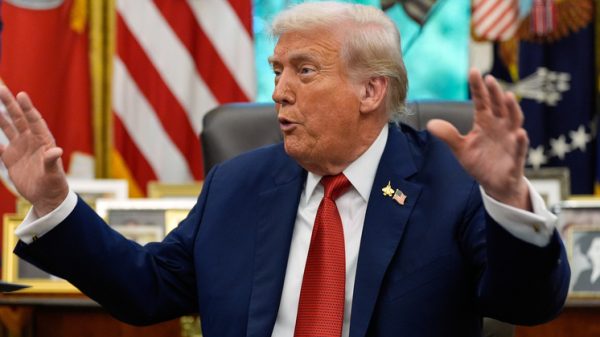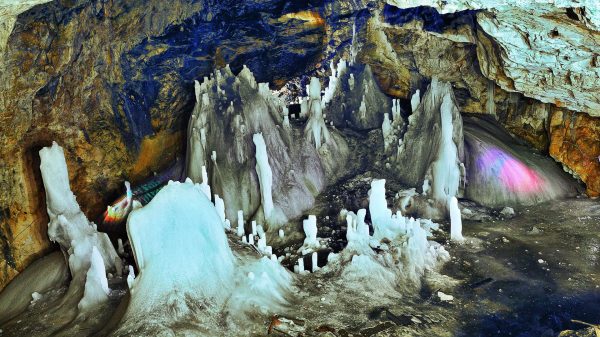Tanzania’s president, John Magufuli, one of Africa’s most prominent Covid-19 deniers, has died after a two-week absence from public life that prompted speculation that he had contracted the disease.
Tanzania’s missing president is in Kenya with Covid, says opposition leader
Read more
Magufuli’s death was announced on Wednesday by the country’s vice-president, Samia Suluhu, who said the president died of heart failure. He was 61.
“The president of the United Republic of Tanzania, the honourable Dr John Pombe Joseph Magufuli … [has] died of a heart condition, at hospital Mzena in Dar es Salaam, where he was receiving treatment,” she said on state broadcaster TBC.
Magufuli, a divisive figure who won a second term in October in an election marred by violence and allegations of fraud, had not been seen in public since 27 February, leading many to believe that he was sick and possibly incapacitated. He had a history of heart problems and wore a pacemaker.
Government officials had insisted Magufuli was working normally and that citizens should ignore “hateful” rumours coming from abroad. Police arrested four people since last week on charges of spreading false information about the health of political leaders.
Last week, the country’s opposition leader, Tundu Lissu, said that Magafuli was critically ill in a hospital in India after contracting Covid-19, while media in neighbouring Kenya reported that an unnamed African leader was being treated for Covid-19 on a ventilator in a hospital there.
Aides of Magufuli have been reported to have contracted Covid-19, with fatalities reported among senior officials in Tanzania. One minister coughed and gasped for air throughout a press conference given to prove his good health.
The US state department spokesperson, Ned Price, said the US remained committed to continuing to support Tanzanians as they advocated for respect for human rights and fundamental freedoms and worked to combat the pandemic. Uhuru Kenyatta, the president of Kenya, described Magufuli as “a champion of Pan-Africanism”, a friend and an ally.
“We hope that Tanzania can move forward on a democratic and prosperous path,” he said.
Grieving relatives of Covid-19 victims, health experts and opposition politicians in the east African country have repeatedly accused Magufuli of causing thousands of deaths and undermining the fight against the pandemic across the continent.
Magufuli denied the local spread of Covid-19 in Tanzania, discouraged the mention of the disease by health workers, and claimed without evidence that vaccines were dangerous, suggesting instead that people pray and inhale herb-infused steam.
Tanzania leader says prayer will cure Covid, as hospitals overflow
Read more
Despite repeated requests by the World Health Organization, Tanzania has not published any statistics on cases since May, when it registered 509 infections. It has no known testing programme in place and health officials have been forbidden from mentioning the virus.
But the number of deaths of people experiencing breathing problems reportedly grew and, earlier this month, the US embassy warned of a significant increase in the number of Covid-19 cases in Tanzania since January. Days later, the presidency announced the death of John Kijazi, Magufuli’s chief secretary.
Soon after, the death was announced of the vice-president of the semi-autonomous island region of Zanzibar, whose political party had earlier reported that he had Covid-19.
Critics said that Magufuli’s dismissal of the threat from Covid-19, as well as his refusal to lock down the country as others in the region had done, may have contributed to many unknown deaths.
Evidence suggests Tanzania was hit hard by a recent surge of infections across southern and parts of eastern Africa brought on by the spread of a new and more transmissible variant of the virus from South Africa.
In late January and February, burial workers in Dar es Salaam, Tanzania’s biggest city, and on Zanzibar, told the Guardian they faced unprecedented demand. Churches said priests were conducting more funeral services than “in living memory”.
Doctors said hospitals had been overwhelmed, with an acute shortage of beds and oxygen.
The extent of any outbreak in Tanzania is unclear, but South Africa, which has roughly the same population, has suffered almost 50,000 deaths from Covid-19, according to official statistics, and many more according to excess mortality figures.
The rise in cases in Tanzania prompted mixed messaging from the government, though it is unclear how officials will react to the death of the president.
The Zanzibar health ministry last week issued a public announcement asking people to avoid gatherings and “rush to a nearby hospital for testing if you feel you have difficulties in breathing”.
But officials denied this was because of Covid-19, saying they wanted to encourage people to take precautions because the number of people suffering breathing difficulties was increasing.
Experts fear that Magufuli’s policies will allow Tanzania to act as a source of infections and new variants, which could spread across Africa and beyond.
Last month, the WHO called on Tanzania to protect not only its own 58 million citizens but also neighbouring countries.
“This situation remains very concerning. Covid-19 is a serious disease that can cause severe illness and even death. National authorities everywhere must do all they can to protect people and save lives,” said Tedros Adhanom Ghebreyesus, the WHO’s director general.






















































Свежие комментарии